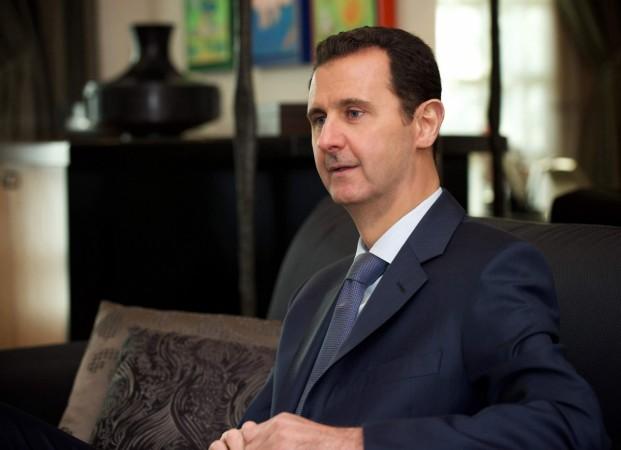
The Syrian civil war entered its eighth year this March. The killing of half a million people in the last seven years was marked by a chemical attack that annihilated a few hundreds more, giving the western allies the chance to assume moral high ground and send off more missiles.
This is no apology for Bashar al-Assad, the Syrian tyrant who has presided over one of the worst human tragedies after the World War II. But when blame for the humanitarian disaster is apportioned, there should be fairness. Is Bashar Assad the lone man to blame for the deaths? Who else have blood on their hands? Is the battle in Syria between the righteous ones and the plan old villains?
To understand the complexities, a whole lot of facts have to be analysed, starting with how the civil war started. The events started in February 2011 when a 14-year-old boy sprayed anti-Assad graffiti on his school walls. Mouawiya Syasneh, is still fighting Assad alongside the Free Syrian Army though his village has now become a wreck.
The anti-government graffiti by Syasneh and the other kids were the product of a season of disgruntlement against Arab rulers. Dictatorships were felled in Tunisia, Egypt and Libya while the so-called benevolent monarchies in Bahrain and Saudi Arabia were rocked.
Assad's rivals in the country and the region believed it was time for him to go. The graffiti were followed by the desecration of the statues of the President's father, Baathist leader and dictator Hafiz Assad. Anti-government marches in Daara and other small towns swelled. A police firing on the protesters killed five people. Assad sensed trouble, delegated high-ranking officials to the troubled areas and censured officials.
Protests spread and gathered momentum and the vanguard set tough demands on Assad. The key demand was that he should lift the state of emergency that was declared 48 years ago. He didn't. As a despot and tyrant at his prime, he couldn't have given up power and crept onto a sick bed in jail like Egypt's ageing Hosni Mubarak.
What followed is history. Bloody history indeed. Did Assad kill people to stay in power in the last seven years? Yes he did. But does that make everyone else who is involved -- or better say trapped -- in this war a saint? Hardly so.
When waves of anti-Assad protests rose in Syria, the US readily called for him to step down. Washington thus gave legitimacy to the anti-Assad protests, encouraging Syria's rivals in the region to become key actors in the unfolding events. Though Barack Obama approved of the anti-Assad protests, he dragged his feet on offering help to the anti-Assad coalition. The result was that help for the opposition came from around the region, especially the Gulf Arab dictatorships that had an axe to grind with Assad.
This 'help' eventually mutated into a daunting Sunni outfit called the Islamic State. The Isis threat wasn't there in Syria to begin with. It wasn't Assad's creation. On the contrary, war historians like Robert Fisk categorically say it was the creation of the Iraq occupation by the Western allies. Well, now that the Isis emerged as a threat in Syria and Iraq, the US and its European allies had to dig heels in Syria. Isis became their legitimate reason to get entrenched in the Syria war.
In 2012, Obama warned he would engage if a 'red line' was breached. That red line was a chemical attack by Assad. Until then it would stand back. Assad gave the US that opportunity several times and anyway by 2014, the US and its allies had the overarching reason to be a dominant actor in Syrian war - the Isis. It would be a serious stretch to say the US created Isis, but it can be safely said that US dilettantism in Syria helped create it.
In a similar way, Isis was the chief reason why the Russians entered the scene. They couldn't have left close ally Assad to perish under an Isis onslaught. By all means, credit must be given to the Russians in playing a more crucial role than the Americans in vanquishing the killer outfit with rotten brains. Who can forget the symbolic value of the concert the Russians hosted in Palmyra after recapturing the ancient city from the Isis?
It was Syria's fate to see a melange of fighters, ideologies and vested interests using its turf. This included the Iranians, the Saudi Arabians, the Israelis and the Turks. Initially the Saudis bankrolled the anti-Assad movement but as years went by, their stakes grew even as Iran took active role in defending Assad. For Iran, the war was important primarily because Assad was their staunchest ally in the region and because a fragmented Syria would weaken their position vis-a-vis Israel.

Growing Iranian role in the battle forced Israel to launch attacks inside Syria, despite a long era of peace between the arch rivals. Then Turks then entered the conflict too, completing the picture. With the power of Damascus integrating, the Kurds were on the path to independence, causing consternation in Ankara. The Kurds were a valuable player inasmuch as they helped the Western allies in their fight against Isis. Freedom would be their rightful prize and if this were to happen, the Kurds in Turkey would want to be part of Kurdistan. Hence Turkey had to enter the field to stop its own disintegration.
Yes, Syria was not the ultimate utopia. It was ruled by a dynastic despot, but so are most of the states in the Middle East. Assad used to detain and torture political dissenters; but show us a single authoritarian regime that doesn't do that. A Human Rights Watch report on the status of pre-civil war Syria would have striking similarities to what it would say about the rights scenario in many countries. And that includes China and Russia. Anyone game for a bloody regime change war in these countries?
"Bashar is not as bad as Isis, you may say – although his enemies are getting close to claiming that he is. But no Baathist suicide killers are trying to massacre civilians in Paris, Brussels, London," Fisk adds. In fact the Baathist Syria was the most secular country out there in the entire breadth and length of the Middle East. In place of Syrian secularism, the other people's war created one of the most hideous forms of religious militancy.
There is no use talking about the could-have-beens. Like, what could have been if the hornet's nest in Syria wasn't opened up. If Assad had been allowed to quell an Arab Spring rebellion. Of course wasn't the Arab spring uprising quelled in Bahrain? Wasn't it quelled in Saudi Arabia?
(Views are the author's own)

















